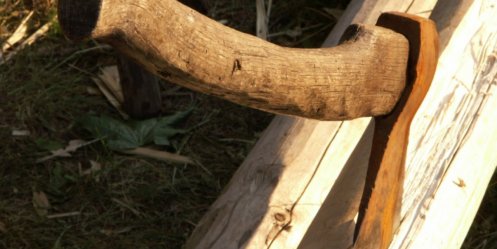On the International Day of Forests in the Amur branch of WWF held a business meeting tenants walnut production zones with the leading companies in the market of non-timber forest products.
To date, Primorye maintain a leading position in the Russian Federation for the development of sustainable forest management, outpacing other regions. Of 113 million hectares, leased for harvesting food forest resources and collection of medicinal plants in the whole country, the share of coastal tenant accounts for more than half. Coniferous-deciduous forests of the Far East are home to the Amur tiger, the place of the traditional way of life of indigenous people, the basis of economy for taiga settlements and a unique object for the climate of the planet. Since 2007 with the support of the World Wildlife Fund (WWF), more than 600 thousand hectares of valuable forests of Primorye were leased for 49 years for the procurement of food forest resources and collection of medicinal plants.
» Ground and the first achievement for us was the very fact that after taking in rent walnut production zones were discontinued industrial logging, where they started, the rest of the risk of such cuttings significantly reduced — The head of the Forestry Department of the Amur branch of WWF Russia Eugene Lepeshkin . — Now came a new and important step for us — tenants are world production walnut production zones. From the success of the implementation of these «gifts» in the future depends on the status of tiger habitats themselves «.
The rich flora of forests of the Far East provides hundreds of species of medicinal plants and food resources used in Eastern medicine, herbal medicine, in the production of teas, dietary supplements and other products.
Unfortunately, however, the unique wild plants Primorye today fall on the domestic and international markets under the flag of China, which been established recycling. The lack of coastal tenants own processing facilities that meet world standards, requires significant investment in this area.
» The lease walnut production zones for food harvesting of forest resources has made it possible not only to save pine forests from logging, but also to plan the development of processing plants of wild plants, including pine nuts. Investment project of our company for processing of wild plants was reviewed by experts of the International Centre p EVELOPMENT regions and submitted for inclusion in the program of socio-economic development of Primorsky Krai for 2013-2017 years. «- says Alex Karasev , Director of «Production and harvesting base», Arsenyev.
The importance of non-timber forest products is recognized as one of the priorities in the government program Primorye «Forestry development in the Primorsky Territory» in the years 2013-2017. Primorsky Krai Administration has repeatedly stated its support of investment projects in the field of sustainable harvesting and processing of wild plants of coastal based on already established enterprises.
Therefore, the direct dialogue of representatives of major companies from Moscow, China and the USA, interested gifts Ussuri taiga, with the owners of coastal wild plants can be considered the first step in cedar and our other wild plants in the Russian and world markets.
» In order to achieve the main goal — the integrated development of the walnut-fishing zones as an alternative to cuts in valuable woods — obviously requires direct access to purveyors of tenant on the main processors and consumers of the product, — said the head of the Forestry Department of the Amur branch of WWF Russia Eugene Lepeshkin . — A significant change in the law is another major challenge that must be addressed to us together with the public and responsible business in the field of food forest resources to make the forest sector of profitability that suits all parties involved to «.

